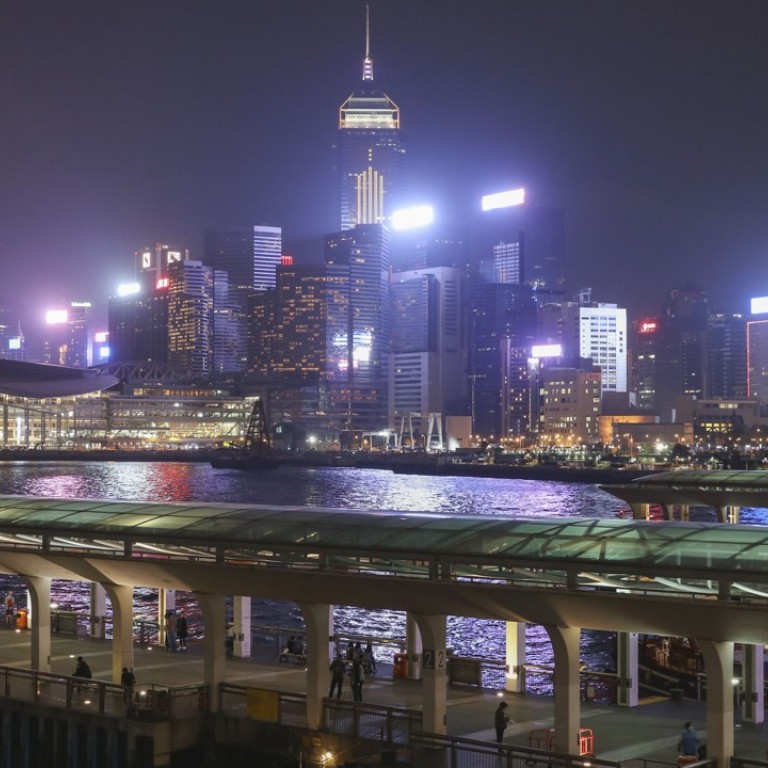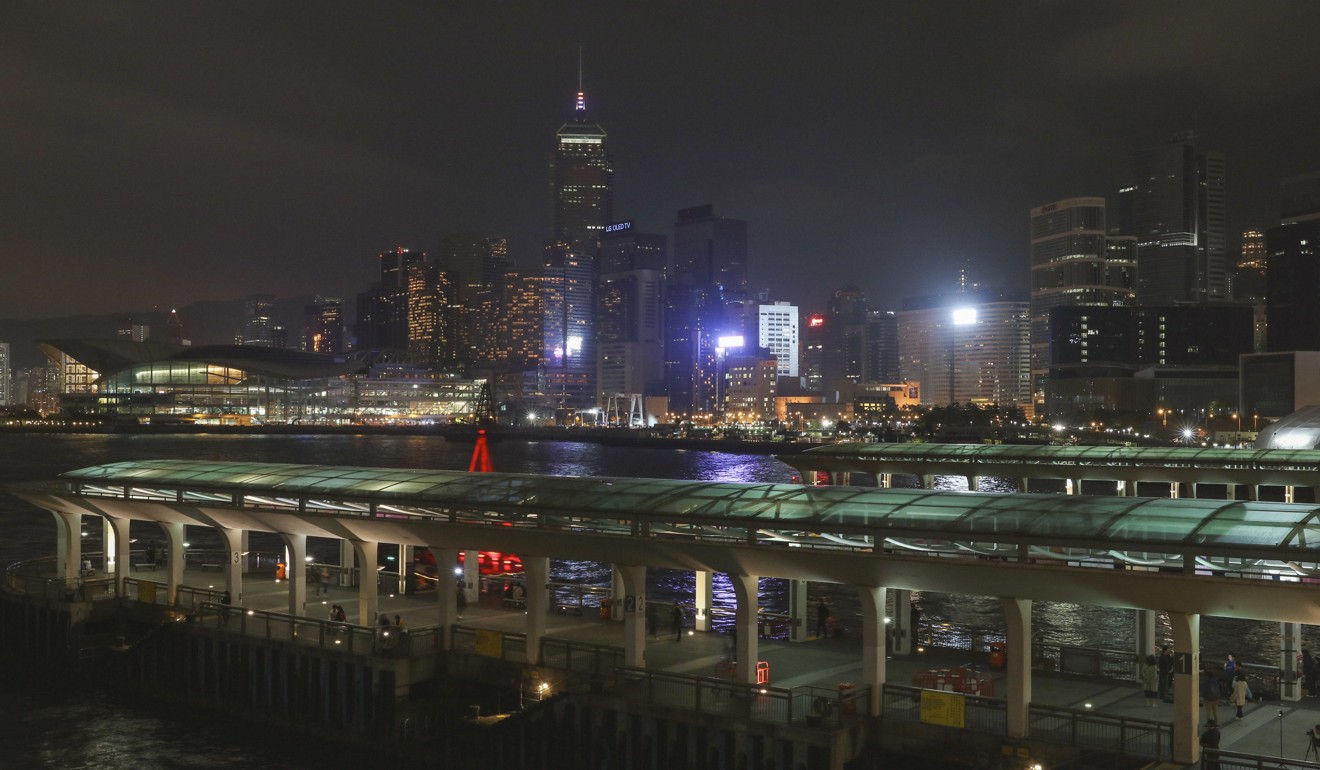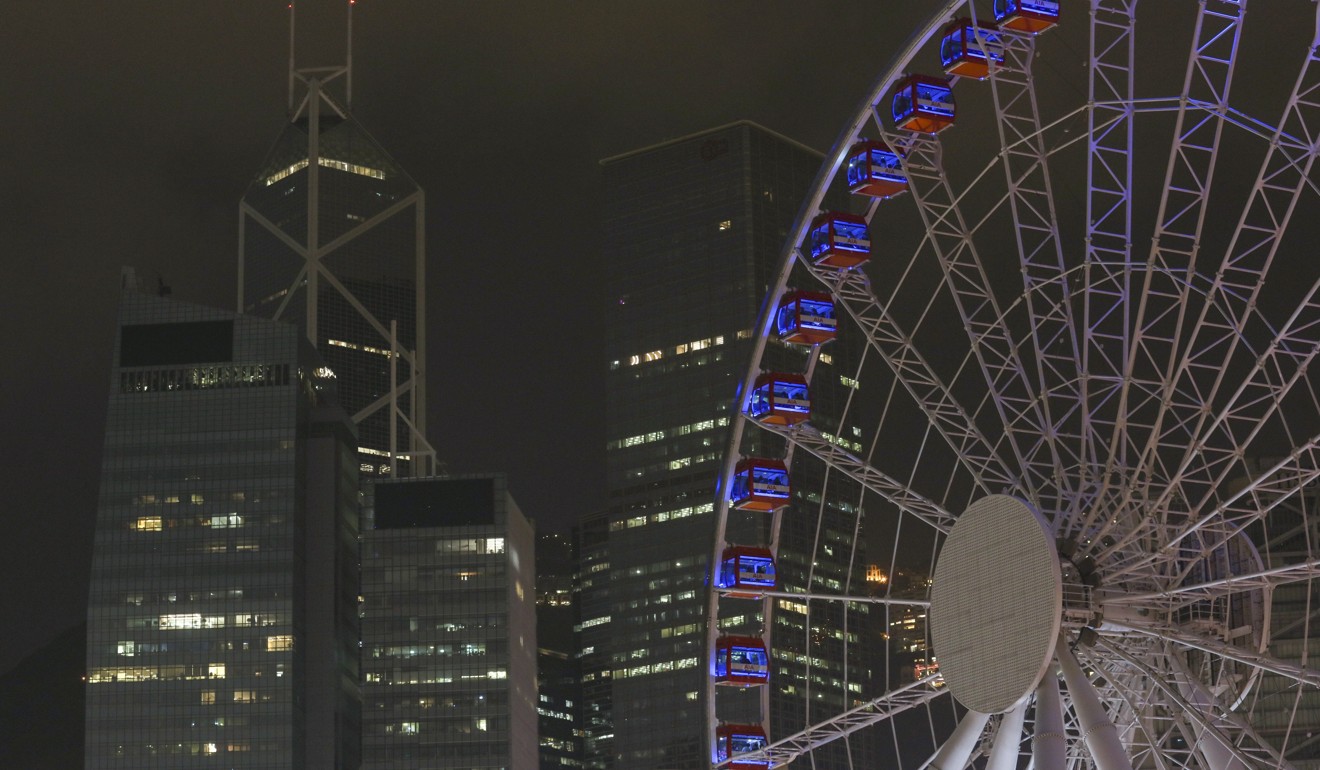
Earth Hour challenge: can Hongkongers reduce their energy usage by just 1 per cent for the coming year?
Energy-hungry city has seen consumption levels rise 3.2 per cent in recent years, as event organisers urge residents to go green beyond just dimming the lights
As some Hongkongers on Saturday observed Earth Hour 2018, a challenge was sounded for the city to reduce its reliance on energy by 1 per cent till next year’s instalment of the global climate change awareness campaign.
The first-ever citywide energy reduction challenge was unveiled by local organisers of the lights-out event – part of a worldwide movement where buildings go dark to promote sustainable consumption.
Electricity usage across the city last year jumped to an all-time high. Environmentalists believed Earth Hour, which took place in Hong Kong for the 10th time, was more important than ever.
Hong Kong green group blasted for ad on LED screen as big as five tennis courts urging lights off for Earth Day
WWF-Hong Kong chairman Edward Ho, said city residents should aim to cut their energy usage by 1 per cent for the next 12 months. This could be done through efforts such as using air conditioners less often and using more energy-efficient household appliances.
The theme for this year’s campaign, “lights out, lights off, let nature shine”, centred on the effects of climate change and the importance of living sustainably – beyond just turning off the lights.
WWF-Hong Kong CEO Peter Cornthwaite called the event “a moment in time when we are getting people’s attention, so we have to ask what we must do to go beyond [current efforts].
The one hour is a symbolic gesture of people committing to change their lives
“The one hour is a symbolic gesture of people committing to change their lives.”
Earth Hour took place around the world on Saturday at 8.30pm. Landmarks across cities such as Sydney, London and New York, for example, observed darkness according to their respective time zones.
Last year, more than 187 countries and regions, involving 7,000 cities and 12,000 global landmarks, took part. In Hong Kong, more than 5,600 companies and buildings joined the event.
Locally, neon lights across Victoria Harbour were switched off, including the popular tourist attraction Symphony of Lights at Tsim Sha Tsui.
Ahead of the main event on Saturday, Earth Hour 2018 kicked off in the afternoon with a themed tram parade promoting sustainable living to catch the eye of pedestrians along a stretch from Sai Wan to Central and Causeway Bay.

Over the years, critics of the event have said that switching off power was merely a gimmick, particularly in Hong Kong where energy usage continues to rise. But Cornthwaite countered this was why Earth Hour should not be just about energy conservation for 60 minutes or one night, but a continuing effort.
Secretary for the Environment Wong Kam-sing led the city’s countdown to the event on Saturday.
Glowing pains: the hidden environmental cost of LED lights
Despite the green call for sustainable energy consumption in Hong Kong, official data showed it would be difficult for the city to power down its need for electricity. Usage rose to record levels in 2017, having stayed below the 160,000-terajoule ceiling since records for energy consumption began.
The city used up 162,431 terajoules in 2017 – a rise of 8.7 per cent since the first Earth Hour in 2009.

The end-to-end energy usage, which includes additional sources of fuel such as gas, coal and oil on top of electricity, has also increased.
From 2009 until 2015 – the most recent year for which annual data is available – Hong Kong’s energy consumption rose 3.2 per cent to 287,986 terajoules.
Cornthwaite warned: “It keeps going up, and it can’t keep going forever.”

